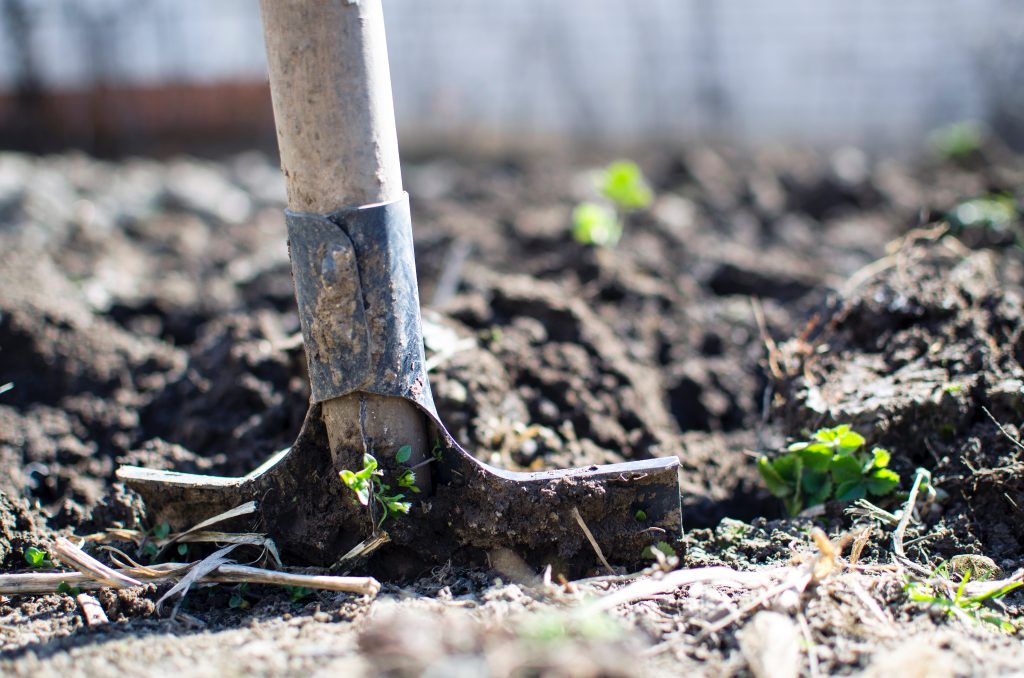Our vision to see a gospel movement on the North Shore will only become a reality if we saturate the North Shore with transformed disciples who make disciples. The charge to “go and make disciples” (Matt. 28:19-20) is our central task as Christians, and is joyful hard work. In the New Testament, disciple making is often compared to farming, and in this short blog series, we’ll look inside the “farmer’s tool shed” to consider practical tools for how to make disciples.
Choosing Real Seed
In the first blog in this series, we considered four “climate conditions” necessary for growing disciples. The first condition was simply choosing the right seed. As you walk down the “seed aisle” at Home Depot, how do you know which seed to choose?
God’s word itself is often compared to “seed” (Mark 4:1-9; 14; 1 Pet. 1:23), which is sown, and then begins to grow. If you want to help disciples grow, it’s crucial that you plant real seed, rather than “seed substitute”. Whatever your configuration for discipleship (one-on-one, triad, micro-group, small group, etc), make sure that it’s centered around planting God’s word itself deep into your lives. This is not to say that secondary resources, or books about God’s word are not helpful (I use many myself), but these resources should helpfully explain, point us back to, and encourage us to open the Bible itself, because only the Bible has supernatural power to make people grow.
When inviting people into discipling relationships, then, it’s important to explain to them that the Bible itself will give shape and direction to everything you do in your time together, even if your time together includes other helpful spiritual exercises. If you have a time of confession and accountability, for example, let God’s word drive you to confession. If you have a time of prayer for one another, let insights from and applications of what you just read significantly inform what you pray about.
Planting the Seed
To further the seed analogy, it’s also helpful to consider how to plant the seed you’ve chosen. Rather than sprinkling the seed atop the surface of the soil, you’ll want to get out your trowel and plant it down deep. To plant the seed deeper, it helps to have a fairly standard set of tools or questions you use from week-to-week, to prompt deeper reflection on the God’s word. Keeping these questions fairly consistent also helps you to avoid burnout, because it keeps you from feeling like you have to prepare a new “bible study” every week! There are several questions you can use (perhaps ask a mature Christian you know what has been helpful for them), but here are three I’ve found helpful:
- What does this passage say about identity—either God’s or my own? Maybe you’re reading about the woman at the well, and you’re struck afresh with how Christ goes out of his way to embrace outsiders. Maybe you’re reading Exodus, and the people’s stubborn refusal to trust God’s provision reminds you of how stubborn you yourself are. Let the text enrich your understanding of who God is and who you are.
- If I believed this passage, what would change about my attitude this week? Sometimes, an attitude change is explicitly called for (“do all things without grumbling” in Phil. 2:14), but more often we can simply reflect on how the truths we read should inform our attitudes. It’s often fairly obvious: “If I really believed that there will be a new heavens and a new earth, I’d be a lot more hopeful this week.”
- If I believed this passage, what would change about my behavior this week? It’s helpful to finish here, instead of start here. This is where we get concrete: “If I believed Jesus embraces outsiders, I’d make an effort to talk to the single mom in our apartment complex.”
Fertilizer Can Help
There are certain “fertilizers” that can also help enrich the growth process, when you’re planting the seed—resources that go a long way towards helping the seed grow in a rich environment. The Bible Project videos are great fertilizer. These videos (typically under ten minutes) provide helpful, illustrated overviews of the key themes and structure of Biblical books, and can help us to grasp the truth in meaningful ways.
Study bibles like the ESV, NIV, or Gospel Transformation study Bibles can also greatly enrich the fruitfulness of God’s word.
Don’t Forget the Watering Can
Finally, persistent prayer is the “watering can” with which we water the seed we’ve planted. I find it helpful to have a few standard prayers I pray, where I ask God to make fruitful the word that’s been planted. One verse I often pray is 2 Thessalonians 3:1:
Finally, brothers, pray…that the word of the Lord may speed ahead and be honored.
Prayers like this recognize God’s sovereignty throughout the process, but also petition him to make our labor fruitful!
The important thing to remember is that making disciples is seed-based work. As we labor to sow the seed, plant it deep, fertilize the soil, and water it regularly, we need to make sure it’s real seed we’re planting! If it is, God will honor this work, and his word “will not return to him empty” (Isaiah 55:11).

